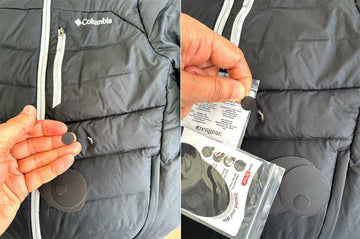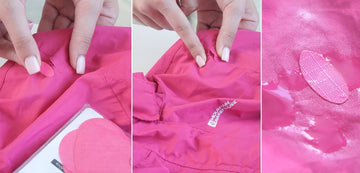Possible Causes of Cracked Heels: Understand and Manage the Condition
by Emily Jannet on Jun 07, 2023
Cracked heels can be an uncomfortable and unsightly condition that affects many individuals. It occurs when the skin on the heels becomes dry, thickened, and develops fissures. This article will explore the possible causes of cracked heels and provide insights into understanding and managing this condition effectively.
What are Cracked Heels?
Cracked heels, also known as heel fissures, are a common foot problem that can affect people of all ages. Cracked heels are characterized by the formation of dry, thickened skin on the heels, which can develop deep cracks or fissures. This condition is often caused by excessive dryness and lack of moisture in the skin, making it more prone to cracking.
While it may seem like a minor issue, if left untreated, cracked heels can lead to pain, bleeding, and even infection. Understanding the causes behind cracked heels is crucial for effective prevention and management.
Possible Causes of Cracked Heels
Lack of moisture: Insufficient hydration can lead to dry skin, including the skin on the heels. Factors like climate, low humidity, and inadequate foot care routines can contribute to this problem.
Dry skin: Some individuals naturally have drier skin, which makes them more susceptible to developing cracked heels. Environmental factors, such as cold weather or excessive exposure to water, can exacerbate the condition.
Obesity: Excess weight can put added pressure on the feet, causing the skin to crack under the strain. People who are overweight or obese are more prone to developing cracked heels.
Poor footwear: Wearing ill-fitting shoes, open-back sandals, or high heels can increase the risk of cracked heels. These types of footwear provide less support and can cause friction, leading to dryness and cracks.
Prolonged standing or walking: Jobs or activities that require long hours of standing or walking can put stress on the feet, leading to cracked heels over time.
Nutritional deficiencies: Inadequate intake of essential nutrients like vitamins, minerals, and fatty acids can contribute to dry skin and increase the likelihood of developing cracked heels.
Medical conditions: Certain medical conditions such as diabetes, thyroid disorders, psoriasis, and eczema can cause dryness and skin abnormalities, increasing the risk of cracked heels.
Understanding the Importance of Managing Cracked Heels
Managing cracked heels is crucial to prevent discomfort, pain, and potential complications. Ignoring the problem can lead to deeper cracks, bleeding, and even infections. Proper foot care is essential to maintain healthy, crack-free heels.
Prevention and Management Tips for Cracked Heels
Moisturizing: Regularly apply a good quality moisturizer or foot cream to keep the skin on your heels hydrated. Opt for products containing ingredients like urea, shea butter, or glycerin, as they help retain moisture.
Exfoliation: Gently exfoliate your heels using a foot scrub or pumice stone to remove dead skin cells and promote smoother, softer skin. Do this regularly but avoid excessive scrubbing, as it can damage the skin.
Proper footwear: Choose comfortable, well-fitting shoes that provide adequate support and cushioning for your feet. Avoid wearing open-back sandals or high heels for extended periods, as they can cause friction and contribute to dryness and cracking. Consider the use of silicone heel protectors.
Weight management: Maintaining a healthy weight reduces the pressure on your feet and helps prevent cracks from forming. Incorporate a balanced diet and regular exercise into your lifestyle to manage your weight effectively.
Regular foot care: Make it a habit to wash and dry your feet thoroughly, paying extra attention to the heels. Use a mild soap and lukewarm water, and gently pat your feet dry with a soft towel. Avoid excessive soaking, as it can strip away natural oils.
Nutritional balance: Ensure you have a well-balanced diet rich in vitamins, minerals, and essential fatty acids. Include foods like fruits, vegetables, whole grains, lean proteins, and healthy fats to nourish your skin from within.
Seeking medical help: If your cracked heels are severe, persistent, or accompanied by pain, bleeding, or signs of infection, it is important to consult a healthcare professional. They can assess the underlying causes and provide appropriate treatment or recommend specialized foot care products.
In a Nutshell
Cracked heels can be a bothersome condition, but with proper understanding and management, you can effectively prevent and treat them. Maintaining adequate moisture, wearing appropriate footwear, taking care of your overall health, and seeking medical advice when needed are essential steps to keep your heels smooth and crack-free.





